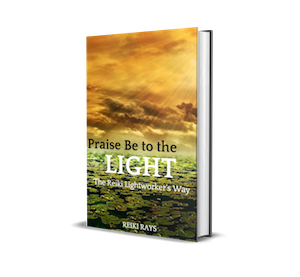The Walk of a Skeptic
In realms of doubt, the skeptic will stray,
Questioning truths along their weary way.
With guarded steps, their doubts unfold,
Seeking wisdom’s embrace, a journey untold.
With ‘k’ instead of ‘c’, skeptic’s query,
Inquisitive minds, forever wary.
Through labyrinthine doubts, they navigate,
Unveiling truths, their purpose innate.
The skeptic’s walk, a quest to unravel,
Challenging beliefs, they bravely travel.
In search of clarity, they tread anew,
With open eyes, their skepticism true.
A skeptic’s path, a dance with reason,
Exploring doubts, in every season.
Amidst uncertainty, they boldly roam,
Seeking truths, on roads of their own.
Not in external realms, the truth resides,
But in the depths of self, it abides.
Through introspection, clarity wins,
A conscious journey, where truth begins…
What makes a Skeptic Tick?
Like any alternative therapy, Reiki faces its fair share of skepticism. Skeptics, often characterized by their unwavering doubt and inquisitive nature, approach the world with a critical lens. Questioning everything they hear or see, they navigate the realm of knowledge with caution. But why is it that skeptics, despite their analytical prowess, sometimes find it challenging to embrace concepts that lie beyond the boundaries of their belief systems?
Questioning everything skeptics have a natural inclination to question and seek evidence to support their beliefs. They rely on empirical data and scientific explanations to validate or debunk theories. Reiki, being an energy-based healing modality, does not readily lend itself to traditional scientific scrutiny. Its effectiveness is often measured subjectively, making it challenging to provide concrete empirical evidence.
Knowledge requires belief, belief necessitates justification and justification needs evidence. To understand the skeptic’s perspective, it’s crucial to recognize that knowledge is not an absolute, but rather a subjective experience. Since the evidence one gets is variable, knowledge too can be disparate and subjective. Each person or group perceives only a fragment of the truth, as evidence can vary based on individual perspectives and experiences. Whether a skeptic or believer, everyone possesses a limited scope of understanding.

Are Skeptics Non-believers?
Contrary to popular belief, skeptics are indeed believers! The distinction lies in the fact that skeptics place stringent conditions on their beliefs. Like blinkers on the horse’s eyes, they do not want to widen the horizon of their sight, restraining themselves from exploring concepts that fall outside their comfort zones. The only difference is that skeptics tie it with their own hands.
Occasionally, skeptics do transcend their skepticism and embark on journeys that lead them to embrace previously dismissed ideas. These personal transformations often arise from firsthand experiences.
It is not uncommon to find skeptics who once adamantly dismissed the idea of Reiki, only to have a change of heart later in life. Their initial skepticism may stem from a lack of exposure or a general distrust of alternative practices. However, when faced with personal struggles or witnessing the profound effects of Reiki, skeptics have reconsidered their position.
How to Convince a Skeptic?
The real question is should one even try? Attempting to convince a skeptic to embrace Reiki or any alternative practice can be an arduous task. Skeptics typically require solid, well-documented evidence supported by scientific research. While Reiki has been the subject of some scientific studies, the lack of conclusive evidence hinders the persuasiveness of such arguments. From a scientific standpoint, it is essential to acknowledge that Reiki operates within a paradigm that goes beyond conventional scientific frameworks.
Skeptics often attribute the perceived benefits of Reiki to the placebo effect and the mind-body connection. The placebo effect, where a person experiences a positive outcome due to belief rather than the treatment itself, is a well-known phenomenon in medical research. It suggests that the mind plays a powerful role in healing. Similarly, the mind-body connection acknowledges the interplay between our mental and physical well-being. While these factors may contribute to the positive experiences of Reiki recipients, they do not discount the potential healing properties of energy work.
Instead of trying to convince skeptics outright, it may be more fruitful to encourage open-mindedness and invite them to experience Reiki firsthand.
Can there be a Middle Way?
Belief and disbelief are two sides of the same coin, often seen as opposing forces. However, just like a coin has a circumference that encapsulates both sides, a holistic approach can acknowledge the validity of both perspectives without judgment. The middle way involves adopting a symmetrical viewpoint, understanding that different people have diverse experiences and that the truth can manifest in various forms.
Reiki, with its emphasis on energy healing and holistic well-being, offers an opportunity for skeptics to explore a middle ground. By engaging in Reiki sessions with an open mind and a willingness to observe the effects, skeptics may discover the benefits it can bring to their lives, regardless of their initial reservations.
The Vital Role of Skeptics in Expanding Knowledge
Skeptics play an essential role in the pursuit of knowledge. Their critical thinking and demand for evidence push the boundaries of understanding. However, it is essential to approach alternative therapies with curiosity rather than dismissive skepticism. While Reiki may initially challenge their beliefs, a symmetrical and holistic approach can create a space for dialogue and exploration. Instead of attempting to convince skeptics, it is often more effective to invite them to experience Reiki firsthand, enabling them to make informed decisions based on personal experiences. By embracing open-mindedness, skeptics can potentially expand their understanding of the world and the possibilities it holds.
Article by Reiki Master Supriya Nair
Free eBook download: We’ve created an eBook with our best articles on this topic, and offer it for free to all our newsletter subscribers.


Supriya Nair
Dr. Supriya Nair, IMD, PhD has been a Reiki and Kriya Yoga practitioner since 2008. A conduit between the scientific and spiritual worlds, Dr. Supriya has a profound fascination for the healing arts. Apart from holding the title of Usui Reiki Master Teacher, Dr. Supriya is a certified Health Coach and proficient in various integrative medicine modalities. She is also the author of "Train Your Brain to Unchain Your Pain."
To get in touch with Dr. Supriya, you can reach out via email at [email protected] or connect with her on Facebook at facebook.com/supriyanair111 and on Instagram at instagram.com/proconscious.cafe.





My mom has been a skeptic, ever since i had been practicing Reiki. I understand her now.